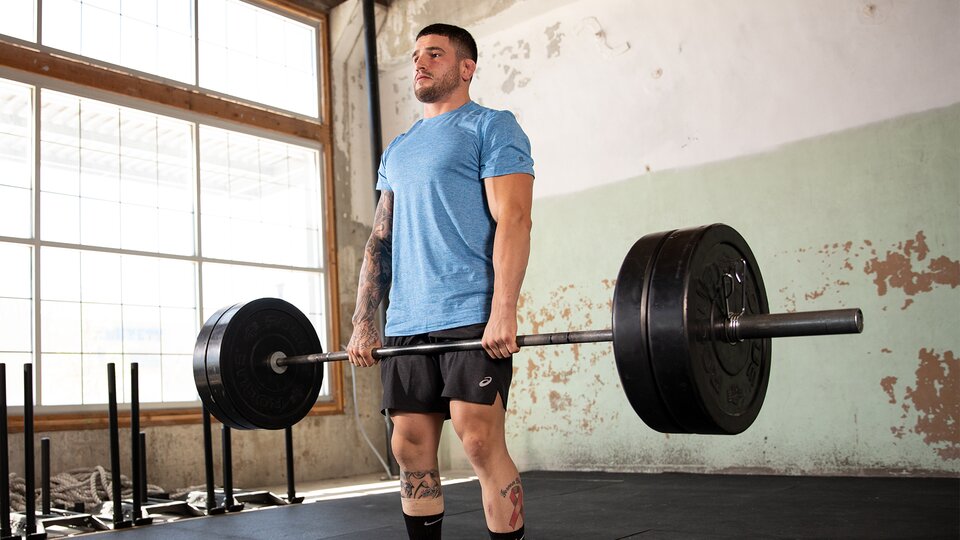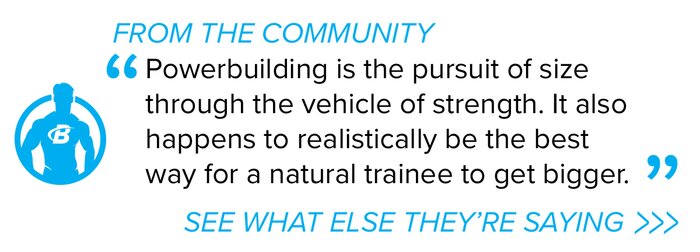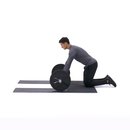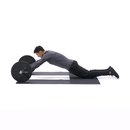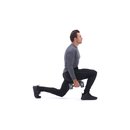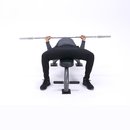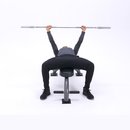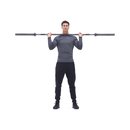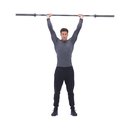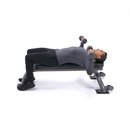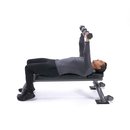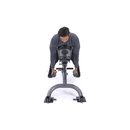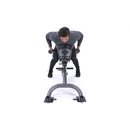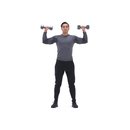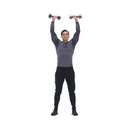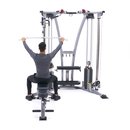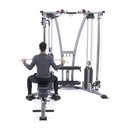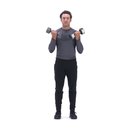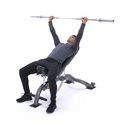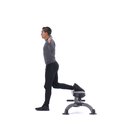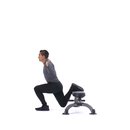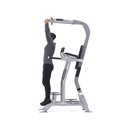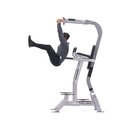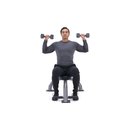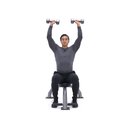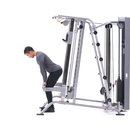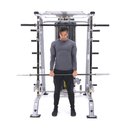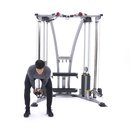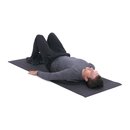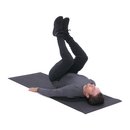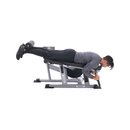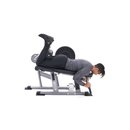Products You May Like
Powerlifting for Beginners | Nutrition for Powerlifters | Powerlifting Training for Women | Powerlifting Meet Prep | Essential Powerlifting Gear | Powerbuilding Program
When you first started lifting, you probably trained with the idea of becoming both big and strong, as if the two words were synonymous. And for those first few months, they were! You saw significant increases in both your size and strength, regardless of what rep range you worked in.
But eventually your progress stalled, and you most likely responded by getting specific. You committed to training for either strength or size.
It’s understandable; today, most training advice online and in magazines is skewed toward either strength or size. Go meet with a trainer, and they’ll ask you which one you want to focus on and work from there. You’ll rarely see a strategy that aims to develop both.
But here’s one, which I call ”powerbuilding.”
What is Powerbuilding?
Powerbuilding is the simple but dramatically effective combination of the lifting styles specific to powerlifting and bodybuilding. I make no claims to have invented the term, it has been used by other coaches before, but this particular version is my own. I created this plan to help develop collegiate and professional football linemen and linebackers throughout my coaching career. Powerbuilding training has given my front seven guys the armor they need to survive a season’s worth of violent collisions, while also gaining the strength necessary for delivering punishing blows.
They also experienced a killer side effect: They got lean and huge. In short, they looked and performed like monsters. If you want to do the same, it’s time to add some power to your building routine.
Let’s run through two quick definitions of each:
Powerlifting: You may think of powerlifting as a sport, but I’m going to expand the definition: It is the use of high muscle tension to successfully transport a heavy load.
More specifically, the focus is usually on building and measuring strength during three compound lifts: the back squat, bench press, and deadlift. Train to maximize low-rep performance in these three big lifts, and brutal strength is yours.
Bodybuilding: Let’s also condense bodybuilding into a single, simple sentence: getting as big as possible while staying as lean as possible. Lifting rep ranges are in the moderate-to-high range—usually at least 8—but possibly up to 15 or more. Of course, your conditioning and diet will have plenty to say about how lean you stay!
Want to get lean and huge? You’ll need plenty of protein. Aim for 1 gram per pound of body weight daily, and use shakes to help you get there!
Why Combine Bodybuilding and Powerlifting?
Traditional training periodization models imply that low-rep and high-rep training can’t cohabitate a single training block. But coaches in the trenches know that successfully squatting or deadlifting a wheel-packed bar creates an internal environment that’s definitely advantageous for hypertrophy.
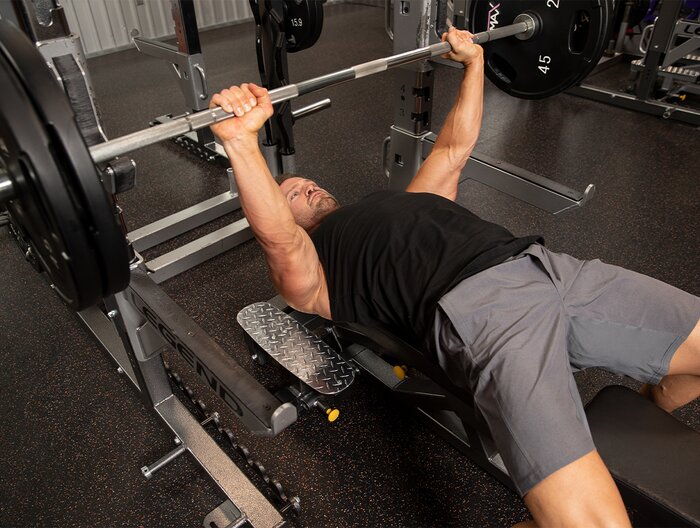
Many lifters attempt to ”have it all” by focusing on maximal strength development early in the offseason, while transitioning to more traditional hypertrophy training as the year progresses. This certainly works, particularly for beginners, but I find that intermediate to advanced lifters benefit greatly from concurrent size and strength stimuli to optimize growth. Otherwise, strength gains fade as the training year progresses.
Nodding your head in agreement? Then you’re ready for the workouts.
Powerbuilding: The Program
In this eight-week program, you’ll work through two progressive four-day training splits, each with two upper-body days and two lower-body days. Throughout the first four-week phase, the first and second training sessions are strength days designed to elicit maximal muscle tension and force in the lower and upper body. The second and fourth sessions employ unique volume building to maximize muscle building.
The second four weeks revolve around a four-day combined powerbuilding split. This progression prioritizes a solid strength base before continuing into the higher total volume of the combined powerbuilding split. You get strong, and then you get big.
Notes:
- Workouts don’t include warm-up sets. Do as many as you need, but never take warm-ups to muscle failure.
- The workouts require you to use a weight that corresponds to your 5RM and 15RM when using cluster and rest-pause techniques. Your 5RM is a weight that you can lift for 5 (and only 5) reps. A one-rep max calculator can help you find it.
- Don’t feel like you need to follow this program to the letter. Shoulders don’t like the barbell? Use dumbbells or a neutral-grip bar instead.
A solid belt means stronger, safer big lifts. For powerbuilding training, it’s a must!
Weeks 1-4: Separate Strength and Volume Workouts
Weeks 5-8: Combined Powerbuilding Workouts
Creatine has been shown to help lifters build size and increase their max strength. For strength and size, 5 grams per day is a no-brainer.*
*These statements have not been evaluated by the Food and Drug Administration. This product is not intended to diagnose, treat, cure, or prevent any disease.
